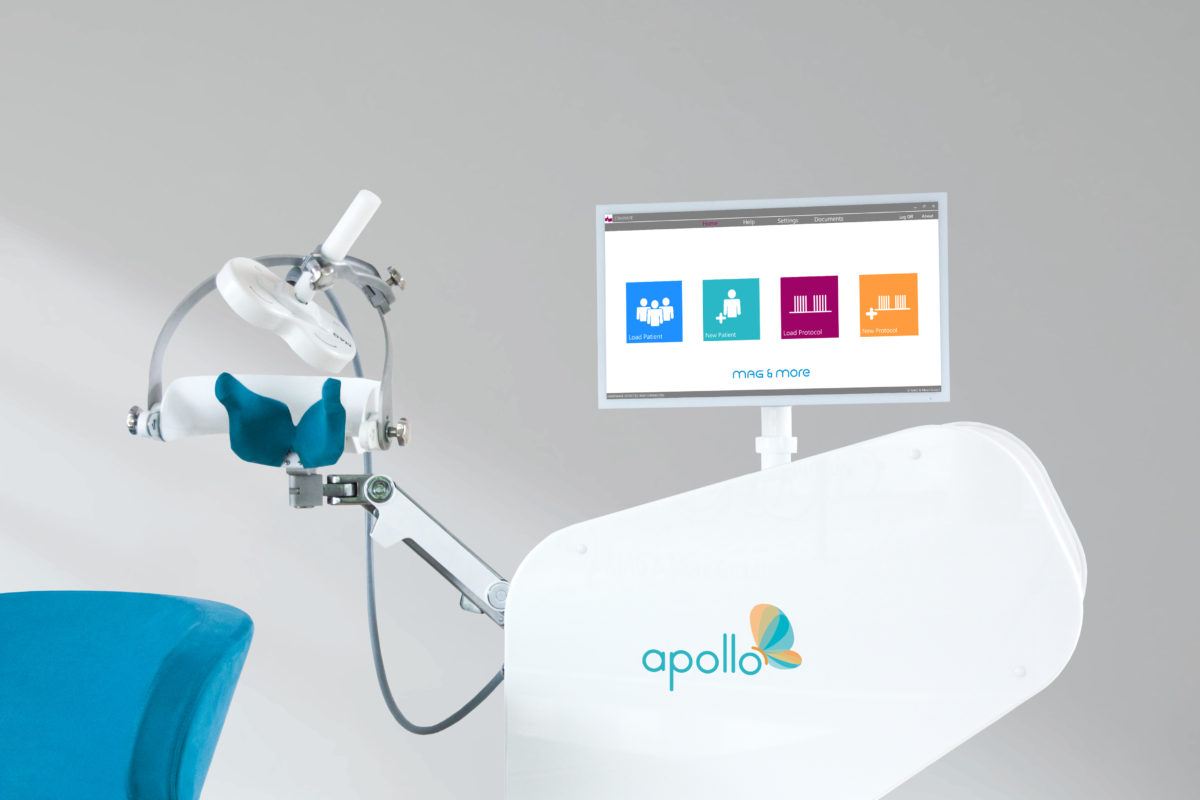Treatment Outcome of TMS
Targeting the Effective spot on the brain
Clinical studies have found that the metabolic rate of severely depressed patients’ left dorsolateral prefrontal cortex (Left DLPFC) is lower than that of normal people.The Left DLPFC region has also been shown as an effective target for the treatment of depression in several large randomized controlled trials.
Thus, by increasing the excitability of the Left DLPFC region and the neuroplasticity of the brain, depression can be relieved.
Clinical Efficacy
The emergence of TMS has made a significant contribution to patients with depression. More and more universities and hospitals have conducted clinical trials of different scales, providing clinical evidence for the efficacy of TMS in the treatment of depression. The study found:
- More than 60% of depressive symptoms are significantly relieved
- 2 out of 3 depressive patients will respond to TMS treatment
- The more frequent the TMS treatment, the more effective it is
No Side effects Compared to Medication
The TMS procedure does not involve surgery, anesthesia or sedative. TMS only changes the brain’s nerve activity by magnetic force. It does not change the body’s other chemical components, so it does not produce the common side effects that antidepressants do, such as insomnia, nausea, weight gain and fatigue.
Patients’ Testimonies
TMS not only receives significant scientific evidence, but also practically changes the lives of people with depression. Let us listen to their stories:
“ I live on antidepressants every day, Some time ago, I dropped out of school, and even having self-harm. My psychiatrist suggested the TMS treatment.
After receiving treatment for a month, my mood was much more stable, I began to feel hope, and motivated. Now, I am returning to campus to complete my university degree. ”
“ When my depression sets in, I will be so sad that I can’t get out of bed…. I can’t take care of my family at all.
Until I received TMS treatment, when the treatment goes to the fifth week, my feelings are different. Now, I don’t have to suffer from the side effects of psychiatric drugs.
I can start my job again and enjoy family fun with my family.”
TMS has helped many people with depression worldwide to regain their lives without being plagued by depression and the side effects of psychiatric drugs.
If you are also looking for treatments other than drugs, TMS will be a turning point for you and your family!
Maintenance Treatment
Even though the results of TMS are promising, there is still a chance of relapse. Studies have shown that approximately 37.8% of patients undergoing 20-week treatment have a recurrence risk, but with a combination of maintenance treatment, the recurrence rate will be significantly reduced by 50%.
The maintenance treatment, if needed, depends on the advice from the professionals and the will of patients. The treatment intensity is tailor-made to accomodate patients’ individual needs.
Reference:
Brock, D.G., & Demitrack, M.A. (2015). A Randomized Pilot Study of Maintenance NeuroStar Transcranial Magnetic Stimulation (TMS) in Patients with Major Depression. Brain Stimulation, 8(2), 429.
Couturier, J.L. (2005). Efficacy of rapid-rate repetitive transcranial magnetic stimulation in the treatment of depression: a systematic review and meta-analysis. Journal of Psychiatry Neuroscience, 30(2), 83-90.
George, M.S. (2011). Daily left prefrontal repetitive transcranial magnetic stimulation for acute treatment of medication-resistant depression. Am J. Psychiatry, 168(4), 356-64.
Modirrousta, M., & Wikstrom, S.L. (2017). Efficacy of twice-daily vs once-daily sessions of repetitive transcranial magnetic stimulation in the treatment of major depressive disorder: a retrospective study. Neuropsychiatric Disease and Treatment, 14, 309-316.
O’Reardon et al.(2007). Efficacy and safety of transcranial magnetic stimulation in the acute treatment of major depression: a multisite randomized controlled trial. Biol Psychiatry, 62(11): 1208-1216.
Richieri, R., Guedj, E., Michel, P.,Loundou, A., Auquier, P., Lancon, C., & Boyer, L. (2013). Maintenance transcranial magnetic stimulation reduces depression relapse: A propensity-adjusted analysis. Journal of Affective Disorder, 151(1), 129-135.

 繁體中文
繁體中文 简体中文
简体中文
